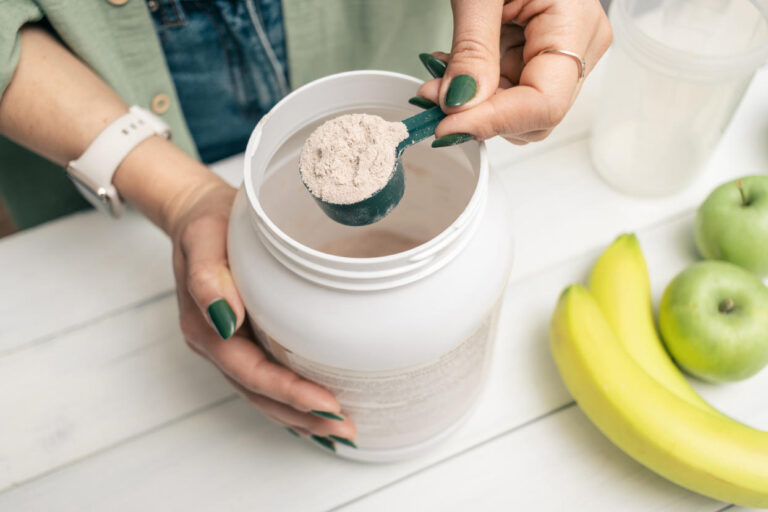Top 7 Stress Relief Methods That Don’t Involve Pills

Anxiety and stress are the unwanted guests that show up at the worst times, often leaving a person feeling overwhelmed, edgy, and downright exhausted. There’s no magic potion to make them disappear, but more people are turning to natural remedies than ever before as a way to manage the madness of modern life. If you’re one of those who wonder which of these natural options can truly make a difference, then you’re in the right place. What follows is a friendly, no-nonsense guide to some of the most popular remedies out there and how these may help keep your stress in check.
Start with the Basics: Why Lifestyle Adjustments Matter
Before diving into specific remedies, it’s essential to start with the basics. Sometimes, the simplest changes are the most powerful. Are you getting enough sleep? Are you eating balanced meals? Are you moving your body regularly? These might sound like small things, but they can make a big difference in how you feel each day.
For one, a lack of sleep alone can amplify anxiety and stress to new heights. Now, imagine waking up to a stressful day feeling groggy—you’re setting yourself up to feel overwhelmed. And it’s not just sleep. Eating nutritious foods and staying active also play significant roles in managing stress because they fuel your brain and body with what they need to cope. Think of these habits as the foundation of stress management. Once they’re in place, other natural remedies like herbs and mindfulness practices can provide additional support.
Finding Calm: Mindfulness and Meditation
Have you ever tried just sitting quietly and breathing? It might sound a bit too simple to be true. For centuries, mindfulness and meditation have honed the skill of calming the mind and fostering a sense of inner peace. The concept is straightforward: bring your attention to the present moment, focus on your breath, and let your thoughts go.
You don’t need fancy equipment or hours of free time to make this work. Many people start with just five minutes a day. Think of it as a mini-reset button for your brain. There are plenty of free meditation apps to help guide you through short sessions, or you can simply take a few deep breaths at your desk during a busy workday. Studies back up what practitioners have known for ages: mindfulness and meditation can genuinely reduce stress and make you feel more in control of your mind.
Herbal Helpers: Can Plants Really Ease Anxiety?
If you’re interested in natural remedies, you’re probably familiar with chamomile tea as a relaxer before bed, but it’s just one of many herbs that may ease anxiety. Other herbs like lavender and valerian root are popular for their calming effects. People have used these plants for centuries to help soothe their nerves, and while they aren’t cure-alls, they tend to be surprisingly effective.
Essential oils are also worth a try. If you’re new to the world of essential oils, you’ll be glad to know they’re quite easy to use. For instance, lavender is known for its calming properties. Just a few drops in a diffuser can fill your space with a soothing scent, or you can apply a little diluted lavender oil to your wrists for a portable bit of calm.
Of course, it’s always wise to consult your doctor before starting any herbal supplement, especially if you’re on other medications. Not all herbs work well with prescription meds, so it’s better to err on the side of caution.
What About Medical Marijuana?
Now, here’s a big one: medical marijuana. It’s a hot topic, and depending on where you live, it might be an option worth considering. Many people have turned to medical marijuana as part of dealing with their anxiety, especially in states that allow it legally for medical purposes. While marijuana isn’t a cure, some find it effective in helping them feel calmer and more at ease—particularly when traditional methods aren’t quite doing it for them.
In Kentucky, for example, marijuana is only available for medical use. So, if you’re interested, you might be wondering how to get a medical marijuana card in KY. This process involves meeting certain medical qualifications, and it’s something you’ll need to discuss with a healthcare professional who can guide you through the requirements. Knowing if it’s a viable option could be a game-changer for those seeking new ways to cope with stress.
The Power of Movement: Yoga, Acupuncture, and Tai Chi
If you’re looking for something a bit more physical, consider trying practices like yoga, acupuncture, or tai chi. Yoga, for example, aside from being a very relaxing type of exercise, combines smooth movements and breathing exercises, making it a double-whammy for stress relief.
Acupuncture might sound daunting, but it’s been around for over a thousand years, and many people swear by its ability to reduce tension and calm the mind. A professional acupuncturist inserts small needles into certain body points, which is thought to help with energy flow and, as a result, reduce anxiety.
Then there’s tai chi, often described as “meditation in motion.” This ancient practice involves slow, mindful movements that help you stay focused and centered. Tai chi can help lower blood pressure, improve balance and flexibility, and generally relax your nervous system. By nature, it’s low-impact and easy on the joints, yet still beneficial for the body. You can even try tai chi at home with just a few online videos.
Nutrition and Gut Health: The Surprising Connection
It may come as a surprise, but your gut and your brain are more connected than you might think. What you eat doesn’t just affect your body; it plays a role in mental health too. Certain foods can have a calming effect, while others might actually make anxiety worse.
For instance, foods rich in omega-3 fatty acids—like salmon, walnuts, and chia seeds—are thought to support mood regulation. Magnesium-rich foods such as leafy greens, nuts, and seeds have a soothing effect on the nervous system. And don’t forget about probiotics. They help balance gut health, which may, in turn, positively impact your mood.
So next time you’re planning your meals, consider adding in foods that are good for your body and your mind.
Prioritize Self-Care and Lean on Your Support Network
Sometimes, the smallest things make the biggest difference. Self-care doesn’t have to be complicated. It can be as easy as reading a good book, taking a walk outside, or spending time on a hobby you enjoy. Self-care is about taking time to recharge—even if it’s just a few minutes each day. While it might feel indulgent, it’s anything but; taking care of yourself is essential, especially when stress levels are high.
Then there’s your support network. Never underestimate the power of talking things out. Whether it’s with friends, family, or even a support group, connecting with others can make you feel less isolated. Talking to people who understand can be incredibly validating and might even offer a fresh perspective you hadn’t considered.
Conclusion: Putting It All Together
So, where does that leave us? Managing anxiety and stress is a journey, not a destination. It’s about finding what works best for you—whether that’s meditation, trying an herbal supplement, moving your body, or just taking time each day to unwind.
There’s no single remedy that works for everyone, and that’s okay. The beauty of these natural remedies is that they’re flexible. You can mix and match, try a little of this and a bit of that, and see what makes a difference for you. And remember, there’s no harm in reaching out to a healthcare provider if you need guidance along the way. Taking care of your mental health isn’t a sign of weakness; it’s a sign of strength. So, give these natural remedies a try, and who knows? You might just find the perfect formula for calm in your own life.






